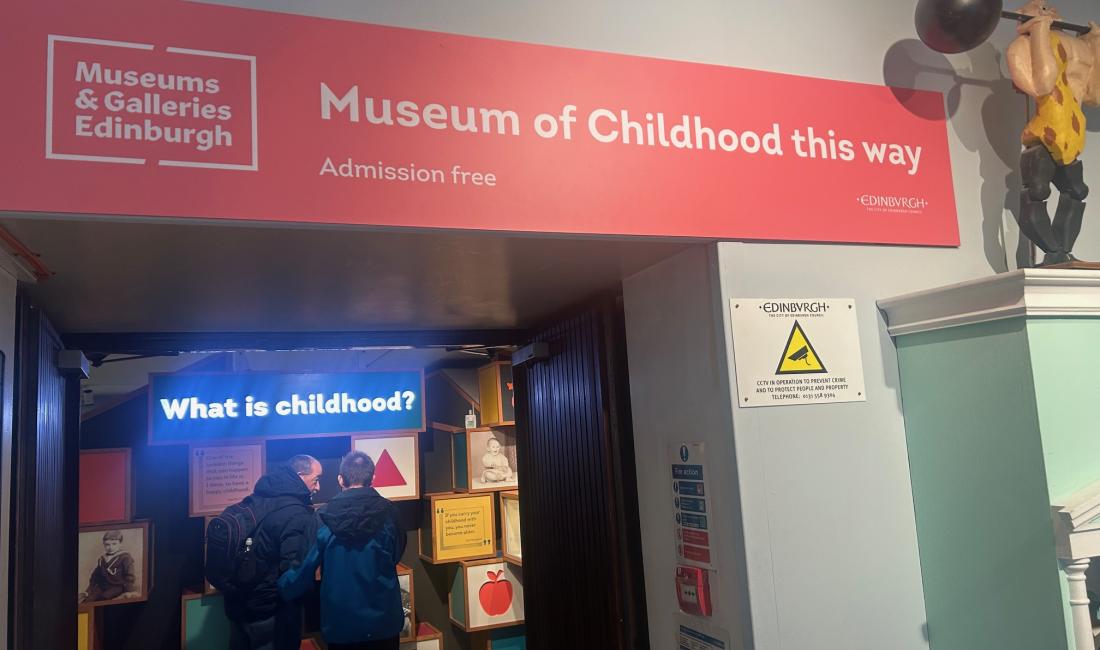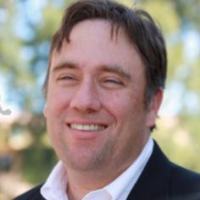A city museum conveys a global narrative of children's rising power.
In Edinburgh, I exited the city offices, turned left at the statue of Scottish economist Adam Smith, and walked two minutes along the Royal Mile to the Museum of Childhood.
Founded in 1955 by a city councilor and toy collector, the world’s first museum dedicated to childhood’s history has four fascinating floors of dolls (like Queen Anne from 1740), toys (like the 1920s voice-activated Radio Rex), and stuffed animals (a Steiff teddy bear that accompanied Jewish children on the Kindertransport train out of Nazi Germany).
But for all its soft exhibition pieces, the museum, by highlighting vast improvements in the living conditions of young people over the centuries, conveys a hard and relevant narrative—about the growing power of children.
Once seen as little adults who did not live long (medieval art did not even depict childhood until the 12th century), Earth’s 2.3 billion children now represent a rising global superpower. In the 21st century, capitalism, extended schooling, legal protections, social supports, and technology have empowered more children to shape their own lives—and threaten the supremacy of adults.
“The grown-ups have failed us,” famously declared the Swedish climate activist Greta Thunberg, who organized global school boycotts on Fridays. “We can’t save the world by playing by the rules, because the rules have to be changed. Everything needs to change—and it has to start today.”
People older than Thunberg rarely discuss children’s growing power—and their fear of it—but it is an animating force in our societies and politics.
After all, nationalism and authoritarianism are strongest in aging countries and among older people, who react at the perceived threats of youthful power.
Restrictionist immigration policies, often framed as an issue of culture or economy, actually focus on demonizing and detaining children. During the Trump and Biden presidencies, the United States had an official policy of separating children from parents at the border. “We need to take away children,” said the Trump-appointed U.S. Attorney General Jeff Sessions.
Officially, the idea was to discourage families from immigrating to the U.S. But one motive of the policy was the conspiratorial fear among adult Republicans that today’s immigrant children might become tomorrow’s powerful young electorate of Democratic voters.
Nationalists around the world also have seized neutral government agencies and expert institutions that they see as hostile to traditional values. But in weaponizing such institutions, nationalists often target children.
Law enforcement agencies worldwide routinely violate the rights of children. National education ministries and local school boards limit who can be in the classroom, what they can read or learn, or how they can protest. And politicized health agencies often threaten the health of young people.
It should surprise no one that President-elect Trump is putting American health policy in the hands of Robert F. Kennedy Jr., who has spent decades spreading monstrous lies about the vaccines that protect children from disease. The Trump administration also seems likely to further restrict abortion rights, endangering the people who most need them—teenagers whose pregnancies are more likely to be unwanted.
Politically, the idea of reducing the power of children, in part by reducing their numbers, has adherents on the economic right (children are “taxeaters”) and the ecological left (more children=more carbon emissions). But, ironically, efforts to decrease youth power by shrinking the child population can be self-defeating. Because, when children become scarce, they often become more important—and powerful.
Societies with fewer kids have smaller talent pools from which to develop adults who can support their older populations as workers, consumers and taxpayers. Which means each kid must be more successful and productive than the last. That’s why smart countries with low birth-rates, notably in Asia, invest so much in the education and support of their children.
Such generational solidarity makes all the sense in the world. But today’s politicians—who thrive on fear and division—try to make us afraid for our children, and of our children.
That’s the context in which many governments around the world have sought to limit children’s power to communicate, by banning mobile phones from schools, and by banning children from social media.
Some of these policies are good-faith efforts to protect children—from distractions and screen addiction, from online bullying, from loneliness and mental health problems. But such policies also can violate basic democratic principles. The governments banning phones for schoolchildren are organizations of adults selected by adults, and they rarely include children in determining such policies.
I’m already seeing a bitter backlash against device control by schools from the children I coach and parent. The complaints are specific. Why can’t I retrieve my homework from my phone, especially when my teacher is interrupting lessons to answer texts? Why are the school administrators, who won’t provide the classes I need, confiscating the phone I use to access online community college courses? How dare the adult world, which won’t stop routine mass shootings at schools, separate me from the phone I need in an emergency?
So, in response to grown-up hypocrisy, don’t be surprised if children demand even more power—including democratic rights that they are denied.
Indeed, that is already happening. Worldwide, young people are forming their own councils and parliaments, some with formal power, to make more decisions for themselves. Young people have successfully pressed to lower the voting age to 16 or 17 in Argentina, Austria, Brazil, Ecuador, Indonesia, Malta, Nicaragua, and in local jurisdictions from Germany to the San Francisco Bay Area.
In fact, one reason I visited Scotland was to study its advances in youth democracy. Beginning with the 2014 referendum on independence for Scotland, children here have been able to register to vote at age 14, and to cast ballots at 16.
Scotland also has its own elected youth parliament, representing ages 12 to 25. That body has campaigned to reduce gender-based violence, and established an online hub, The Right Way, to pressures governments to include children in policy-making. A University of Edinburgh study found that boosting the democratic power of Scottish children makes them more engaged as adults.
Looking from Edinburgh around the world, children’s power feels like a rising tide. Who, but a fool or an adult, would dare stand in our kids’ way?




